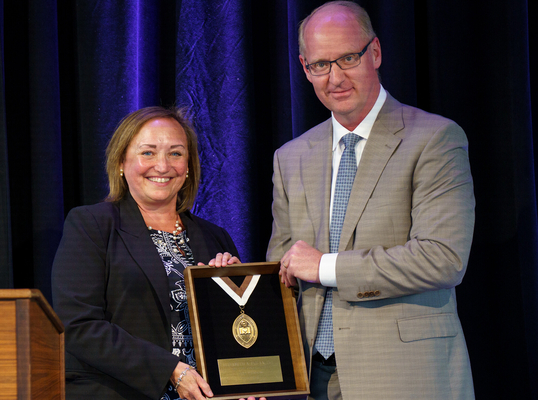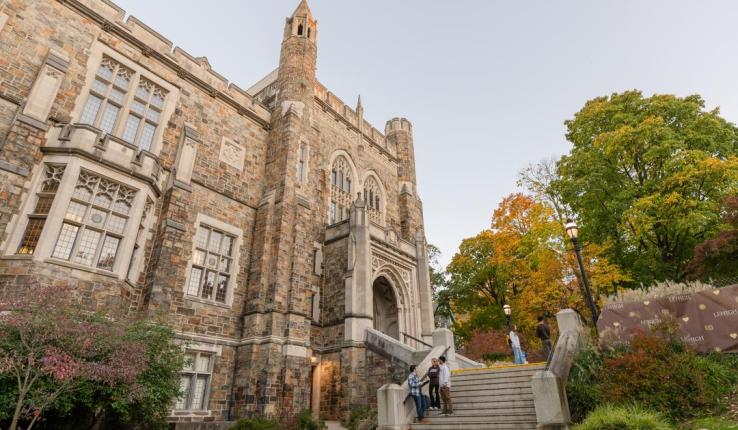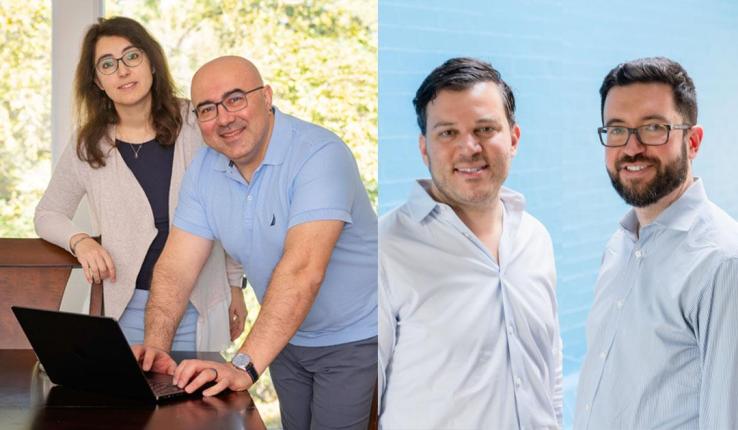“And I will say that I think the new dean of the College of Health is absolutely extraordinary in this regard, in bringing out the best in others,” Helble said. “...I have seen Beth gather people together, pose questions that get the group to think, add her own ideas and genuinely listen—not just hear but genuinely listen—to the conversation, and draw out the best of those ideas to build consensus, both within and outside.”
Dolan thanked Lehigh administrators, fellow deans and her colleagues for their support and their contributions to the college. To fulfill its mission to improve the health of populations, communities and individuals, Dolan said, the college will need strong internal and external partnerships, as well as real data from partners, to investigate the health of populations.
“We are able to improve the well-being of communities only if we collaborate with members of those communities,” she said. “And we must learn firsthand about individual lives in order to impact those lives ethically and effectively. With our partners, we are able to conduct life-changing research with the potential to reduce human suffering.”
Dolan noted the growth of the college’s students, faculty, staff and programs. In addition, she pointed to the accomplishments of the college’s faculty, whom, she said, have published books and articles, won prestigious awards and fellowships, garnered funding to support their research and contributed to the understandings of the multiple determinants of health, pediatric palliative care, the mental health of refugee populations, and the effect of green space and gardening on individual and community wellbeing.
She said the college’s faculty are sought after for their expertise in myriad areas. Among their contributions, she said, “They improve the quality of healthcare in the United States by analyzing systems of delivery; by creating innovative, high tech health education programs; and by considering the ethics of new technological developments in medicine.”
She said to applause, “If we have accomplished all that in two and a half years, just think what we can do in the next five.”
A reception followed.
Dolan has been at Lehigh since 2001. A specialist in health humanities, she studies the expression of suffering in literature and in life from the 18th century to today.
She was founding director of the Health, Medicine, and Society Program at Lehigh, the chair of the board of directors of the Pennsylvania Medical Humanities Association, and the first deputy provost for graduate education at Lehigh.
Dolan earned her M.A. and Ph.D. in literature at the University of North Carolina–Chapel Hill, where she was also the senior fellow in literature and medicine in the Department of Social Medicine, in the School of Medicine for three years.







